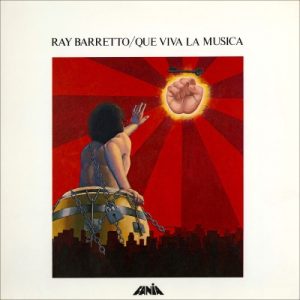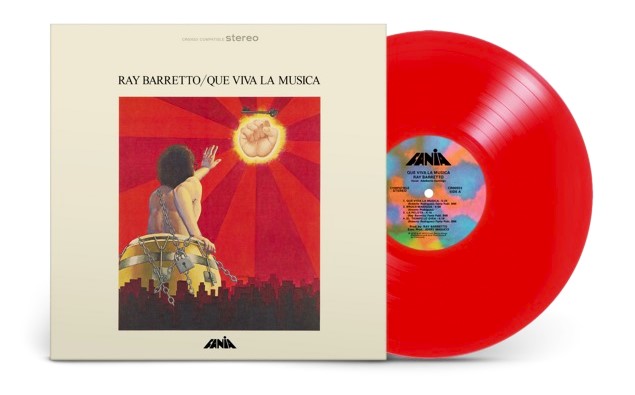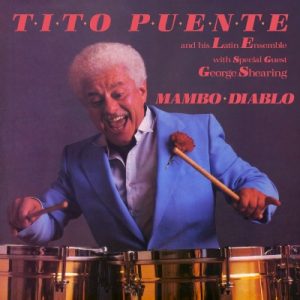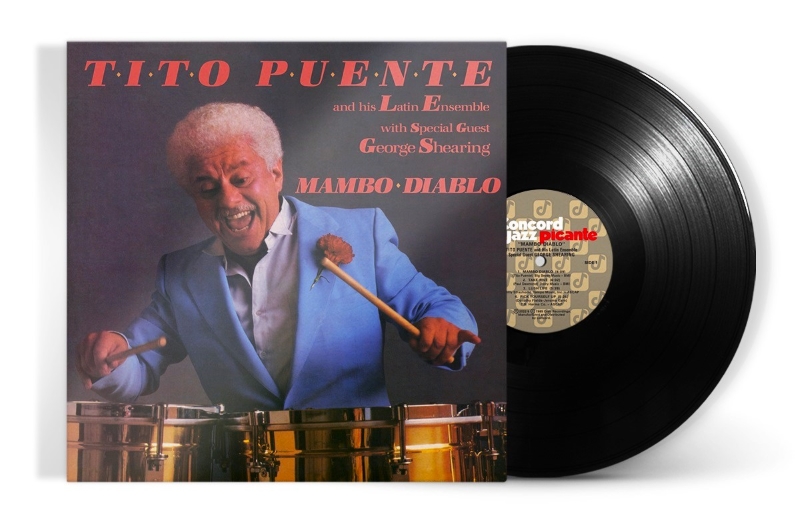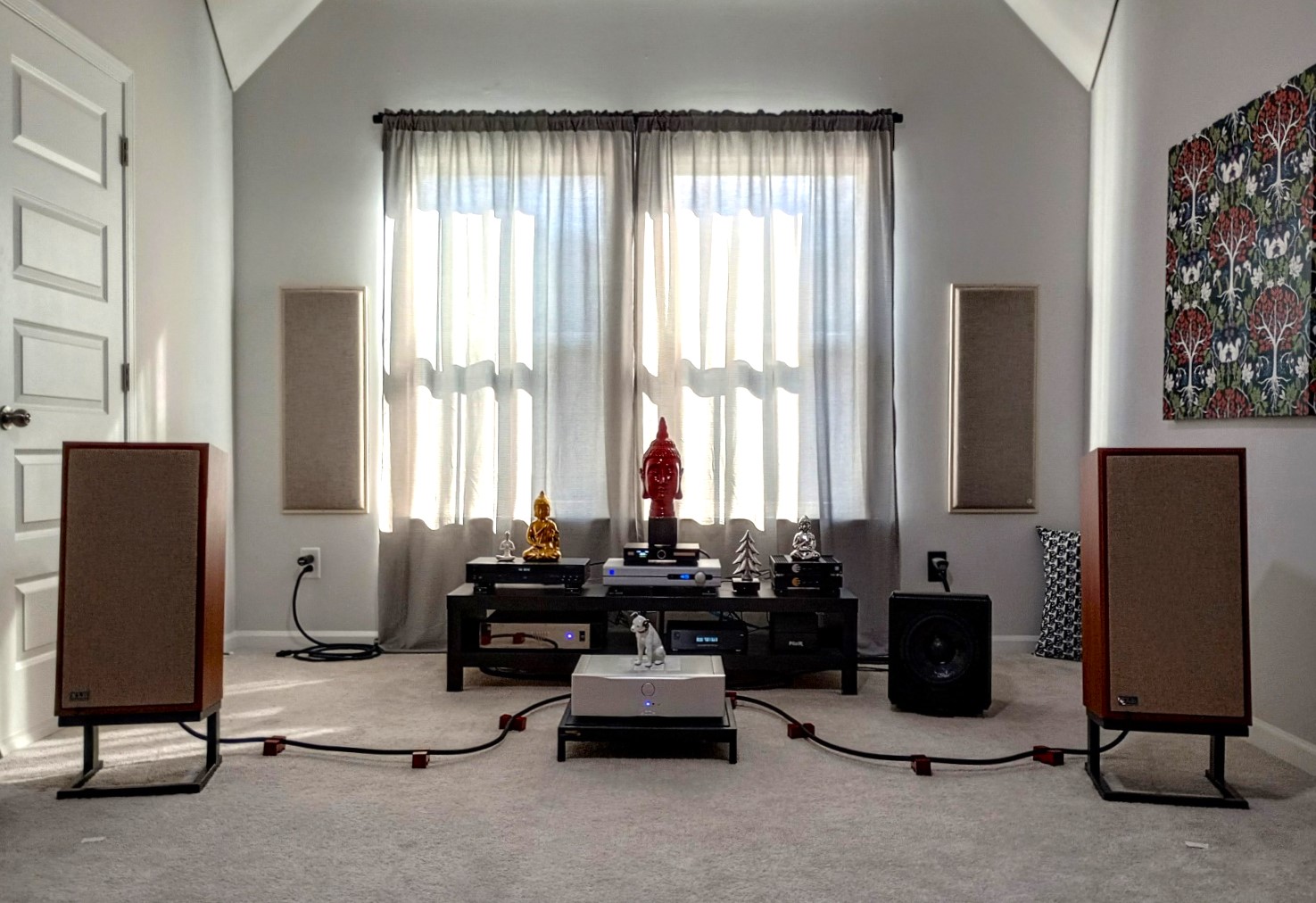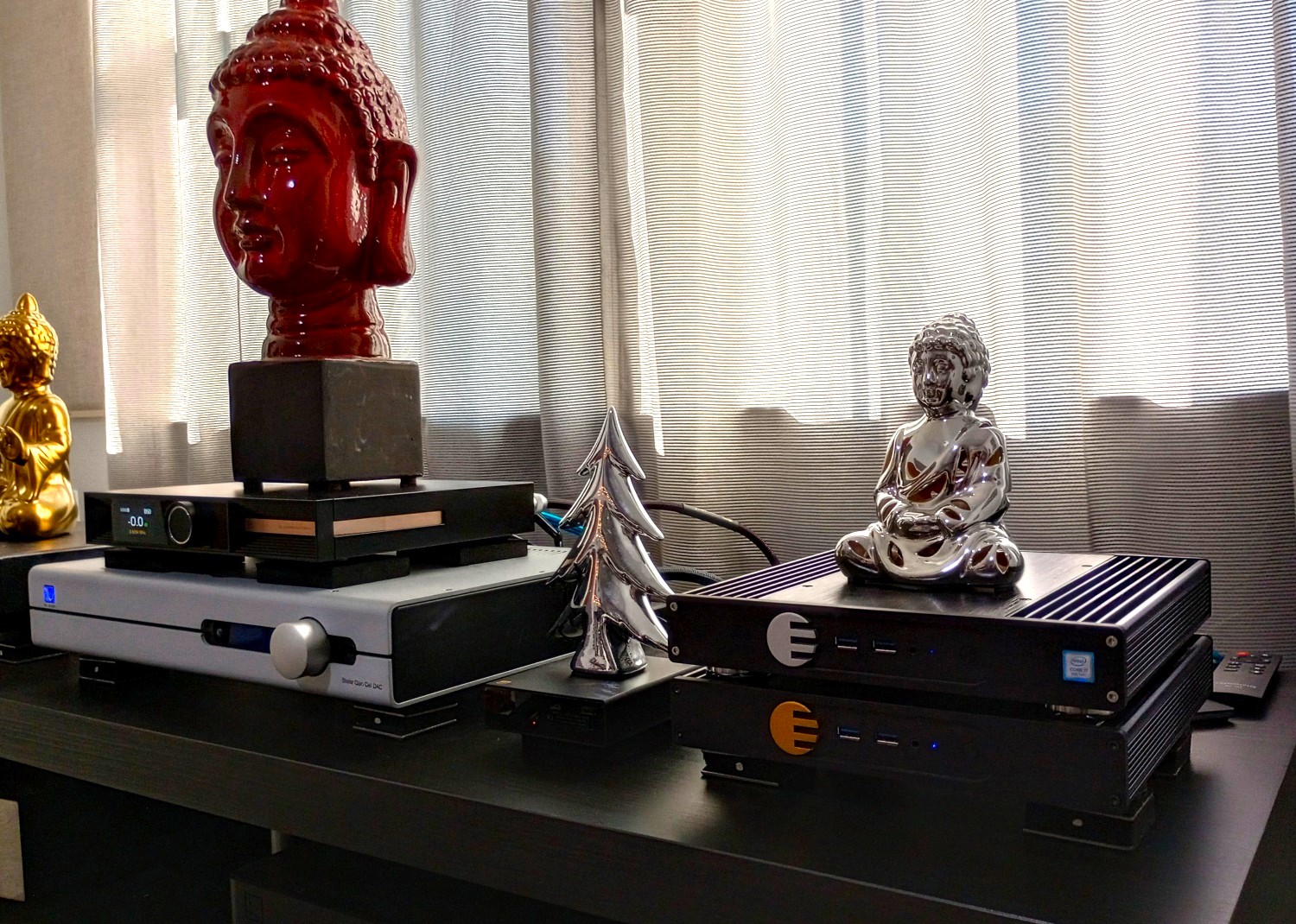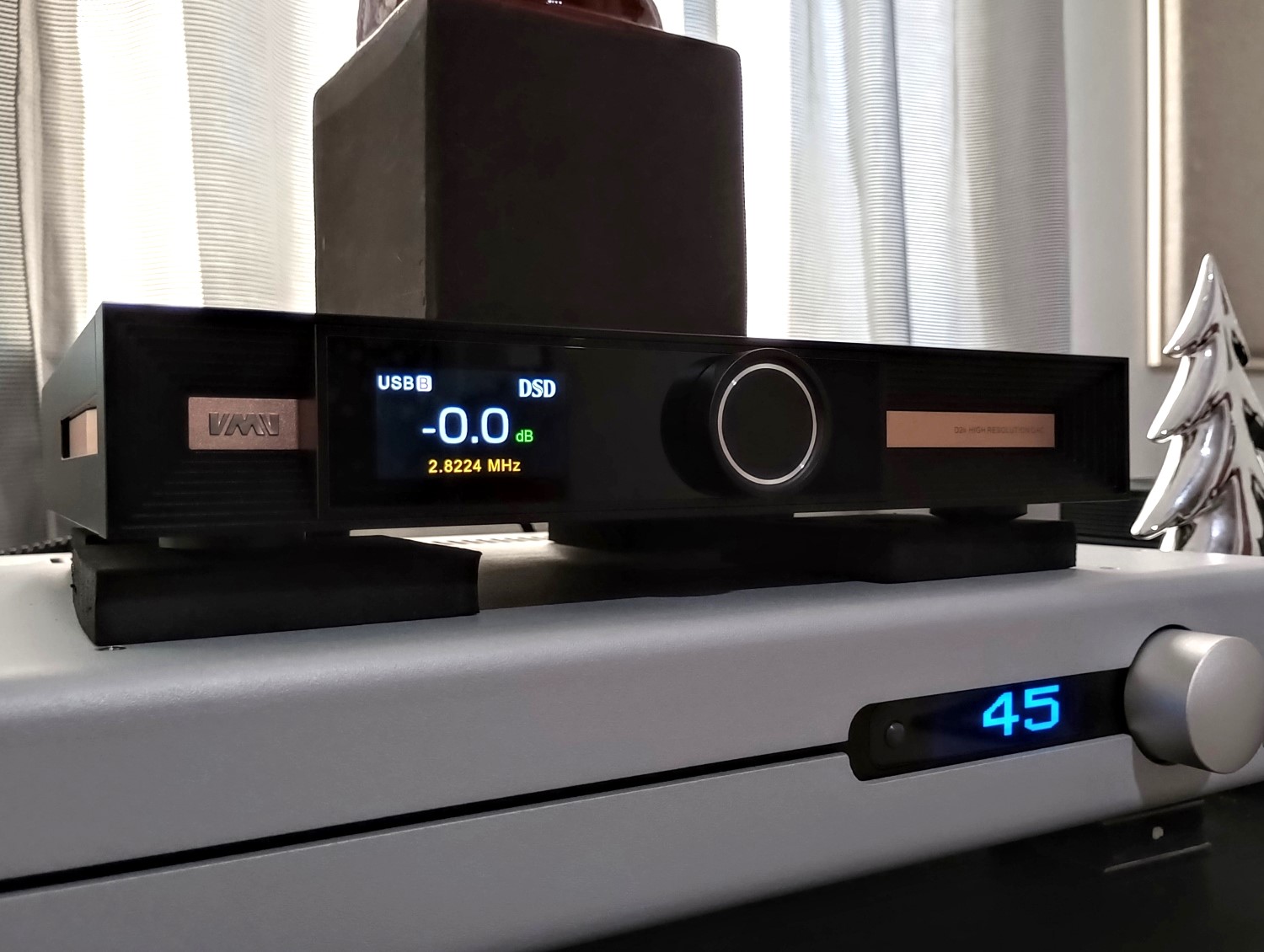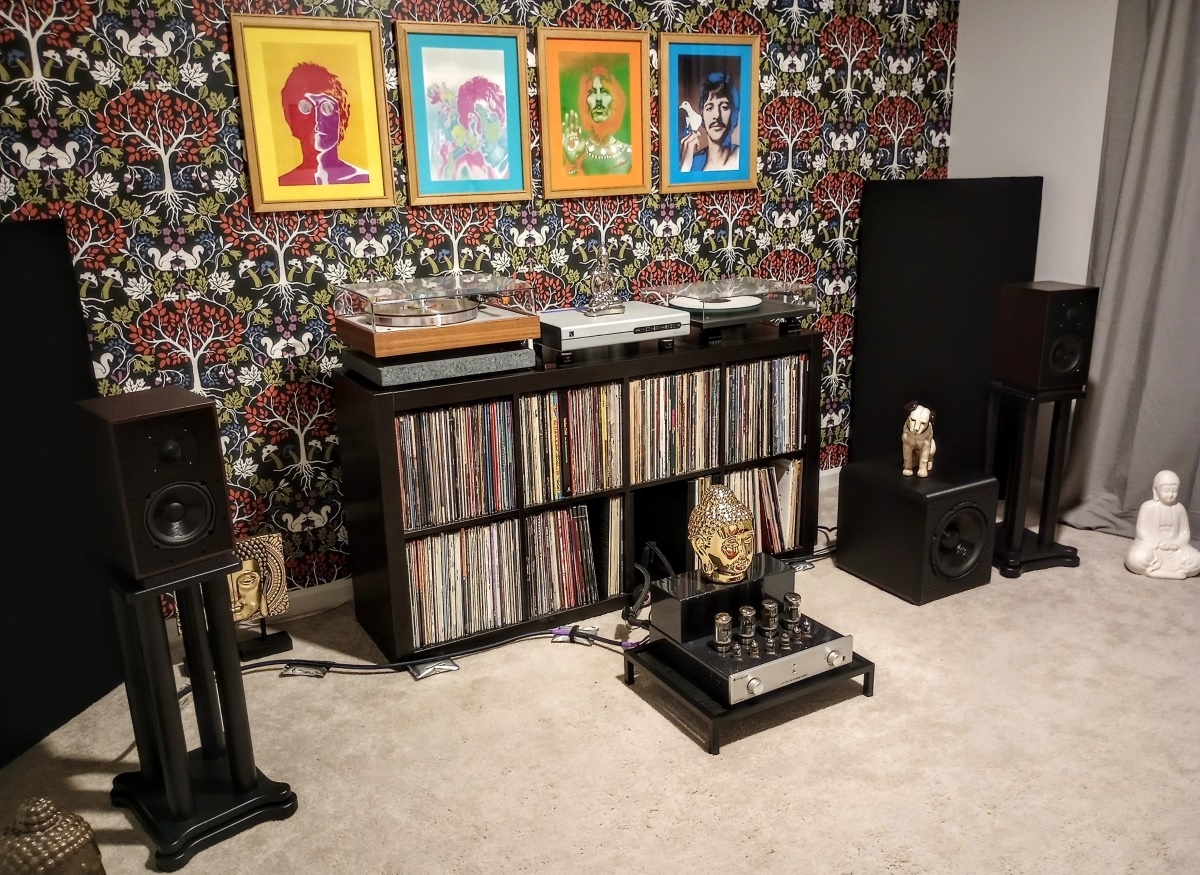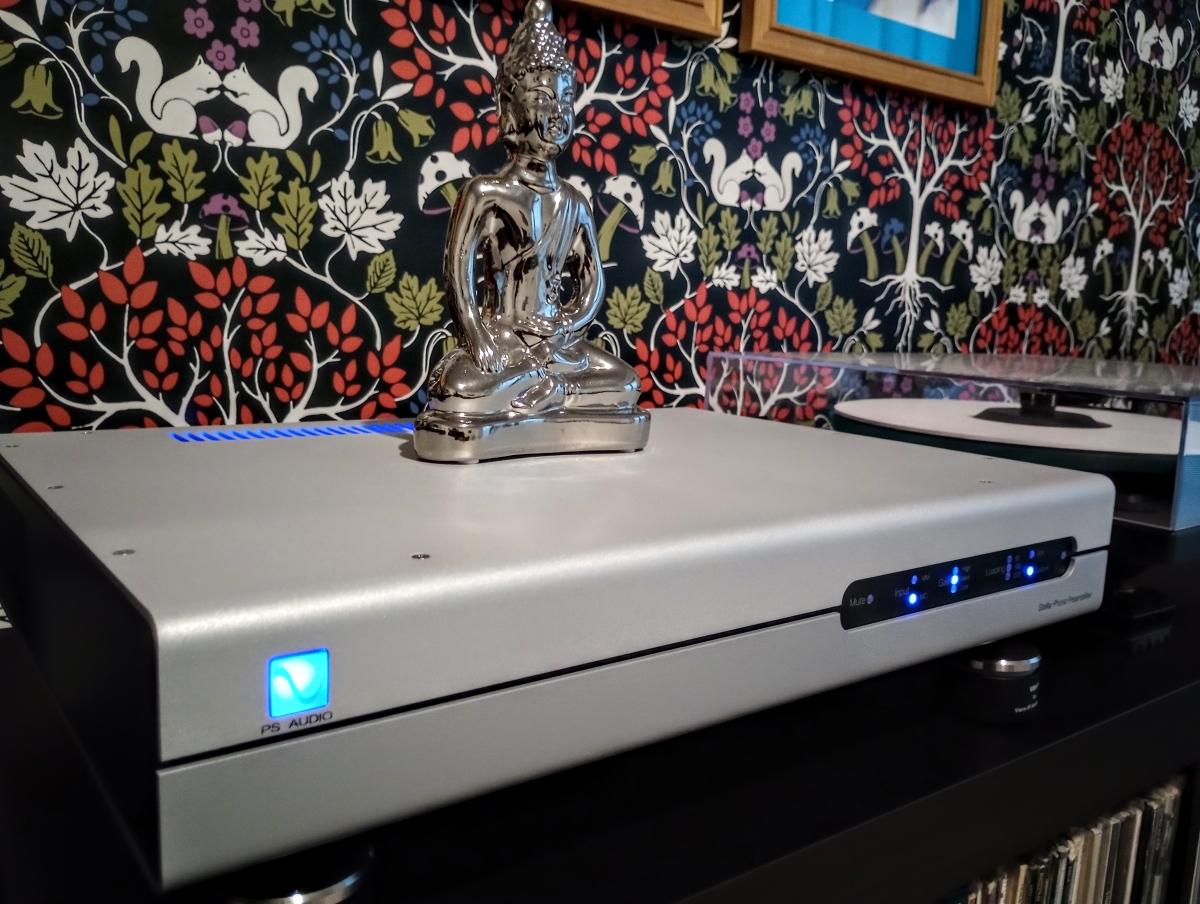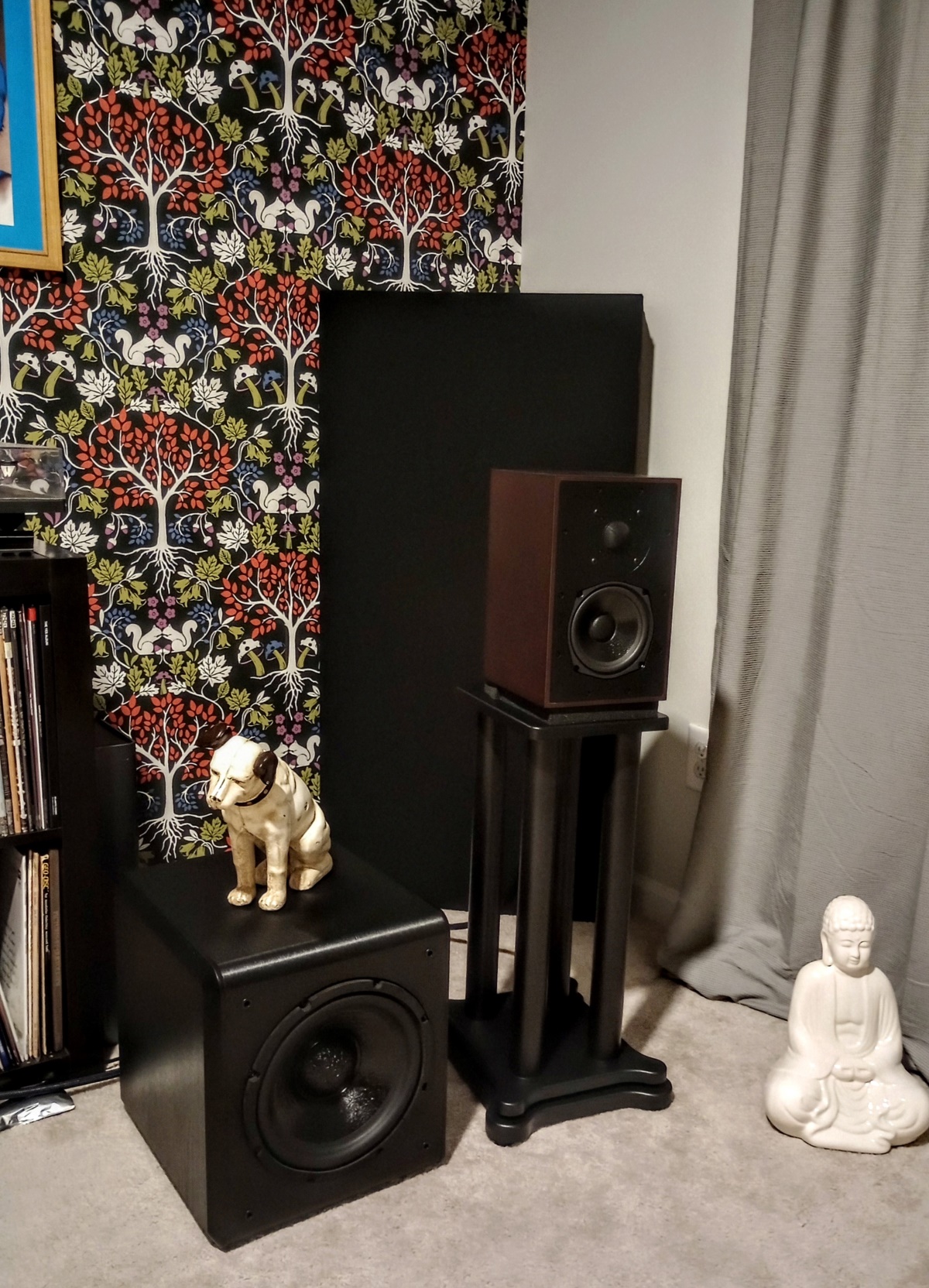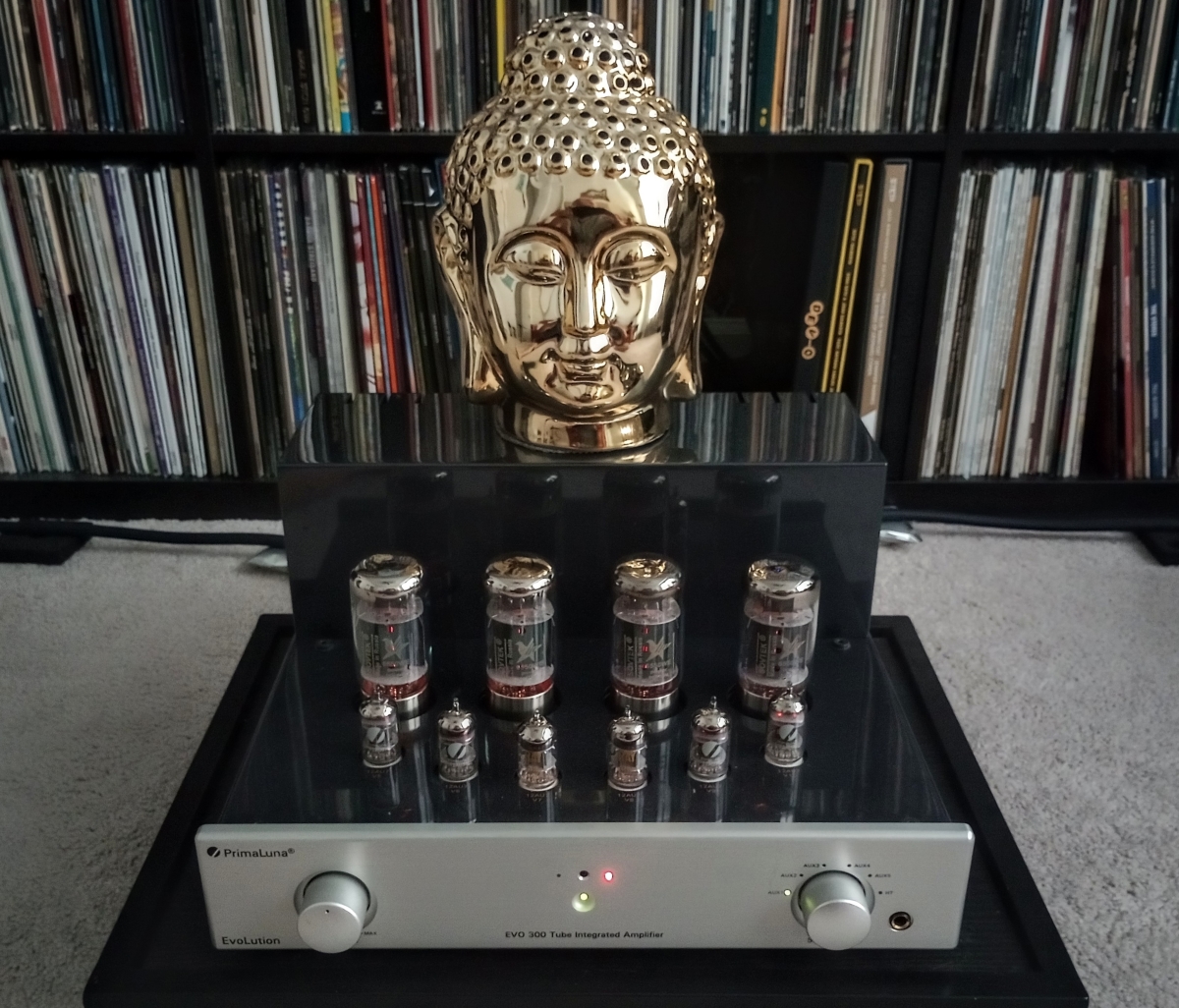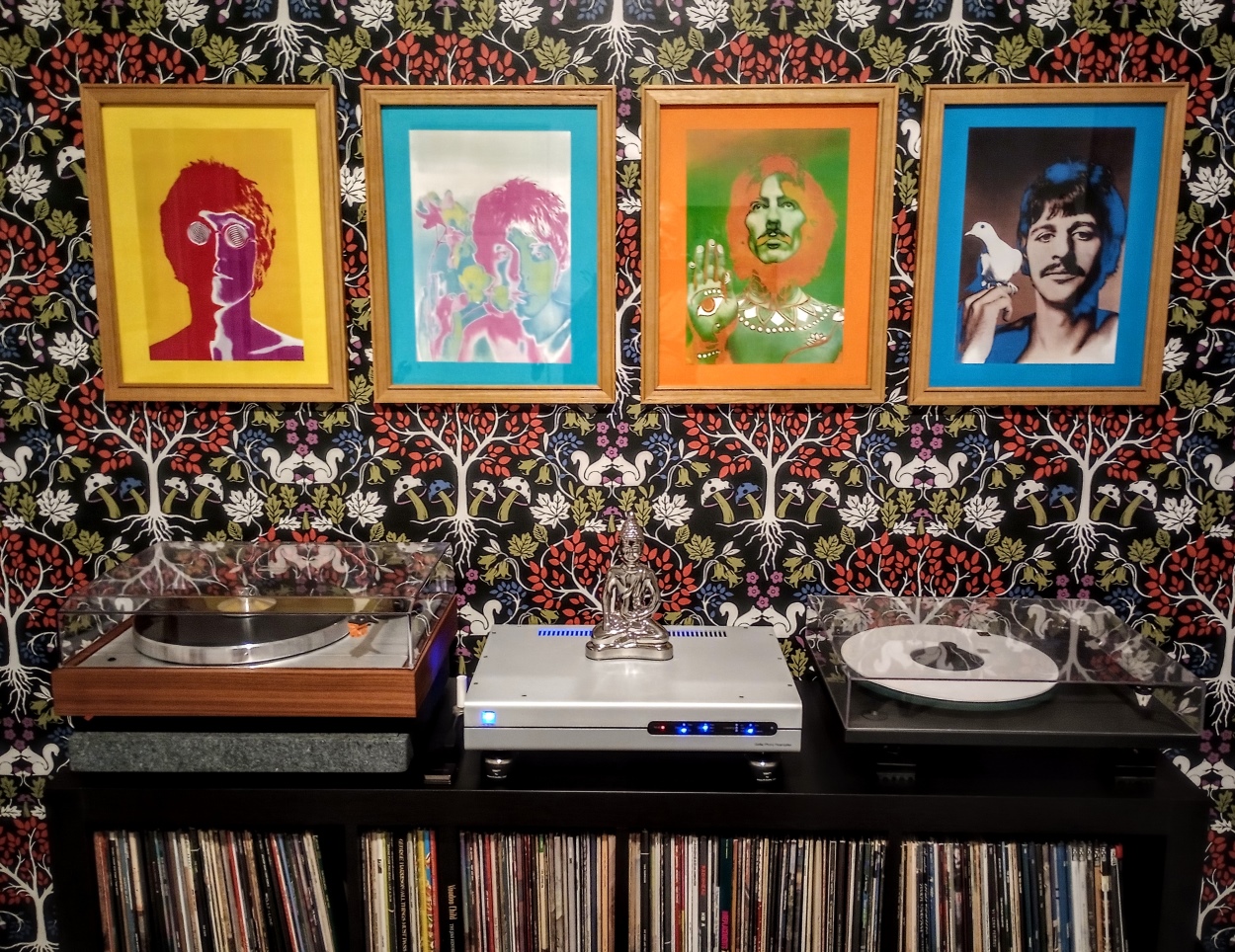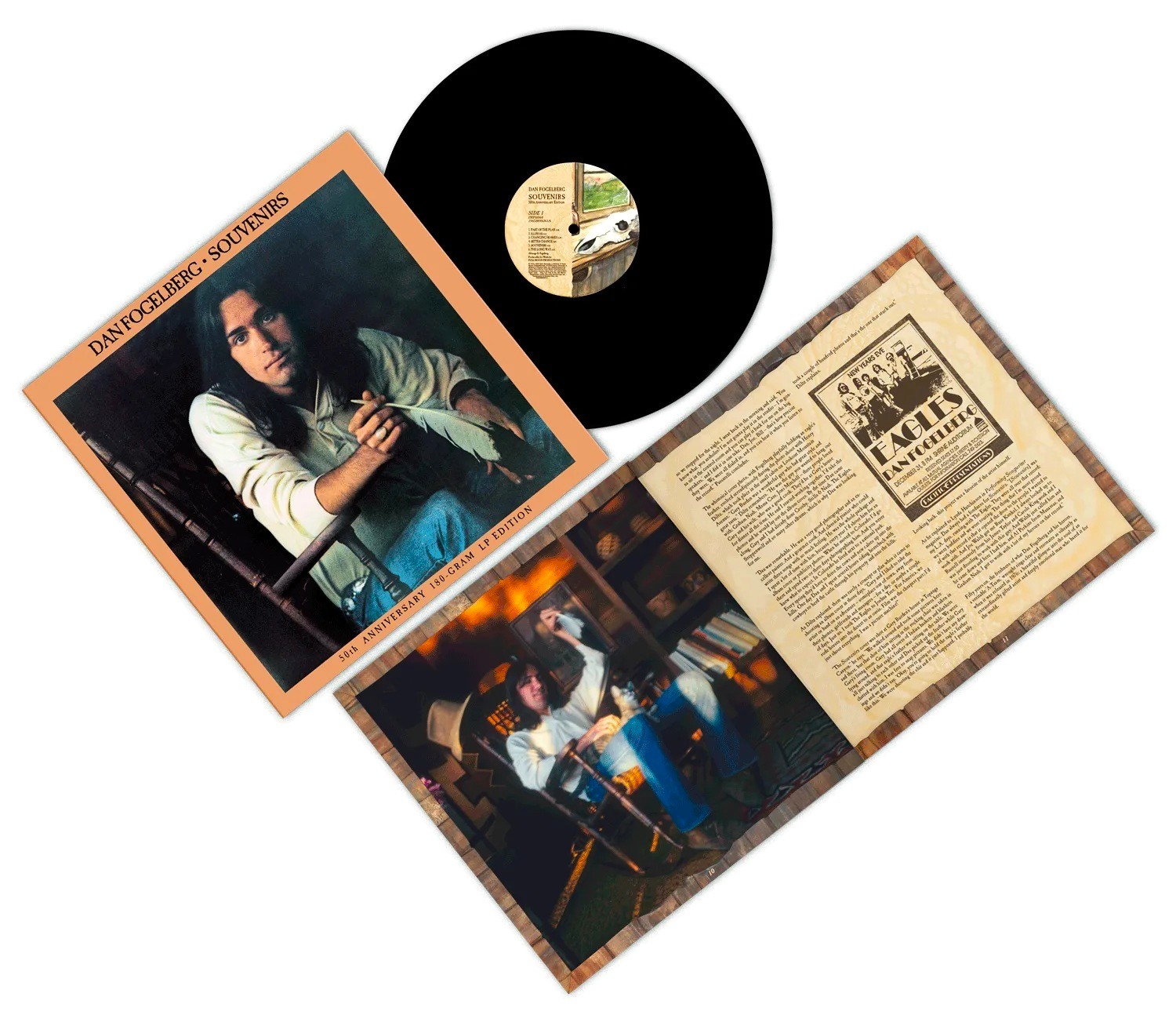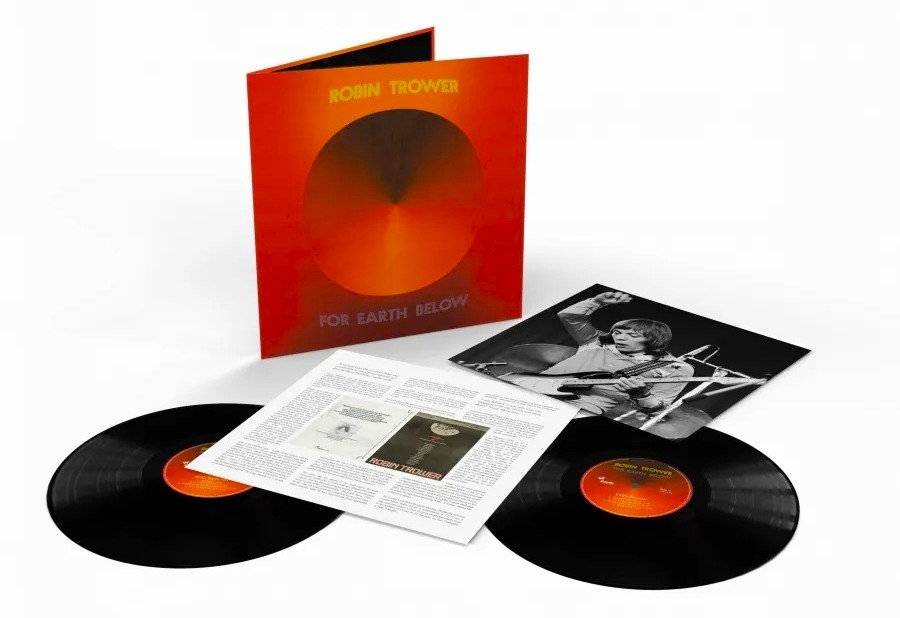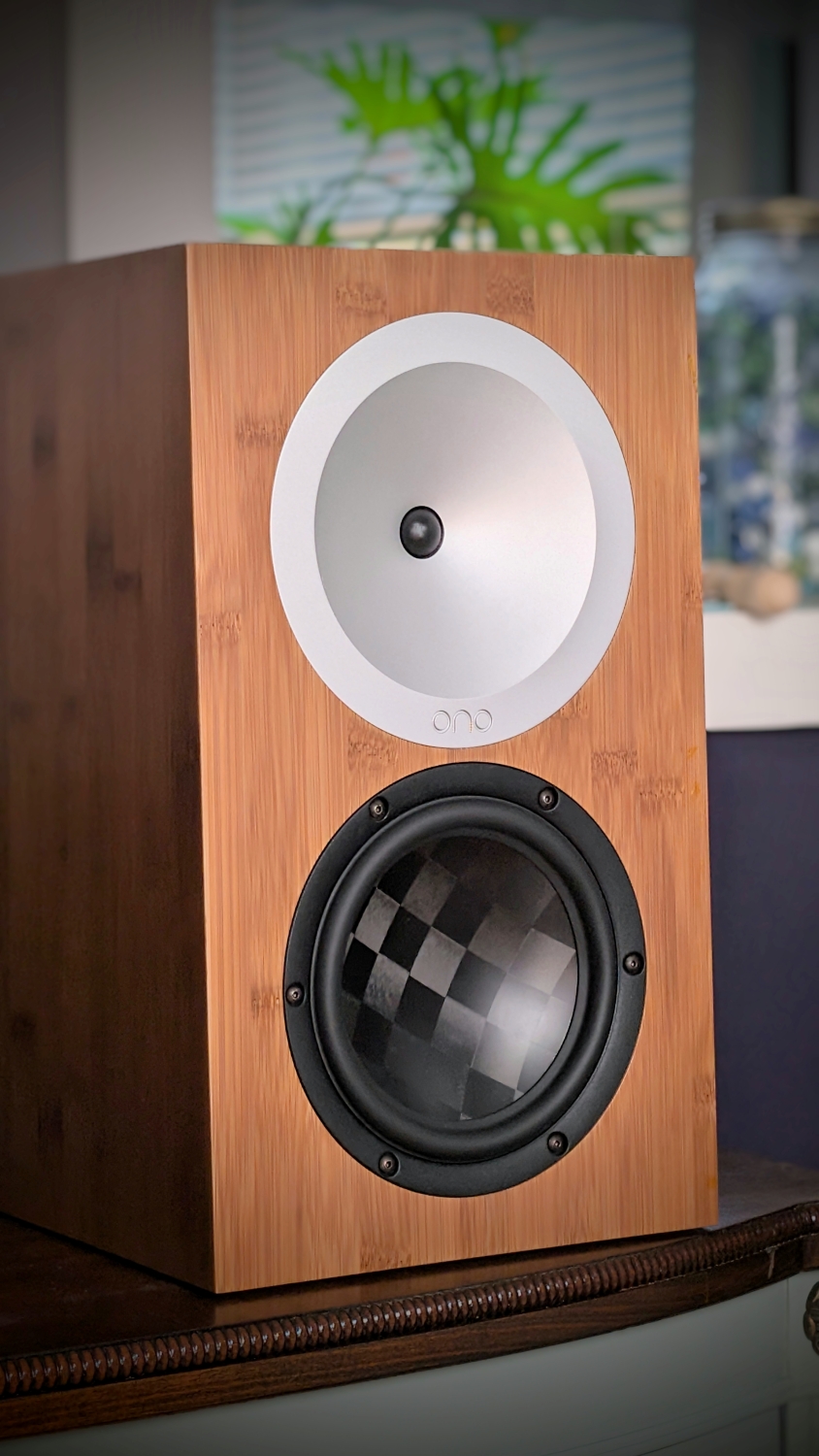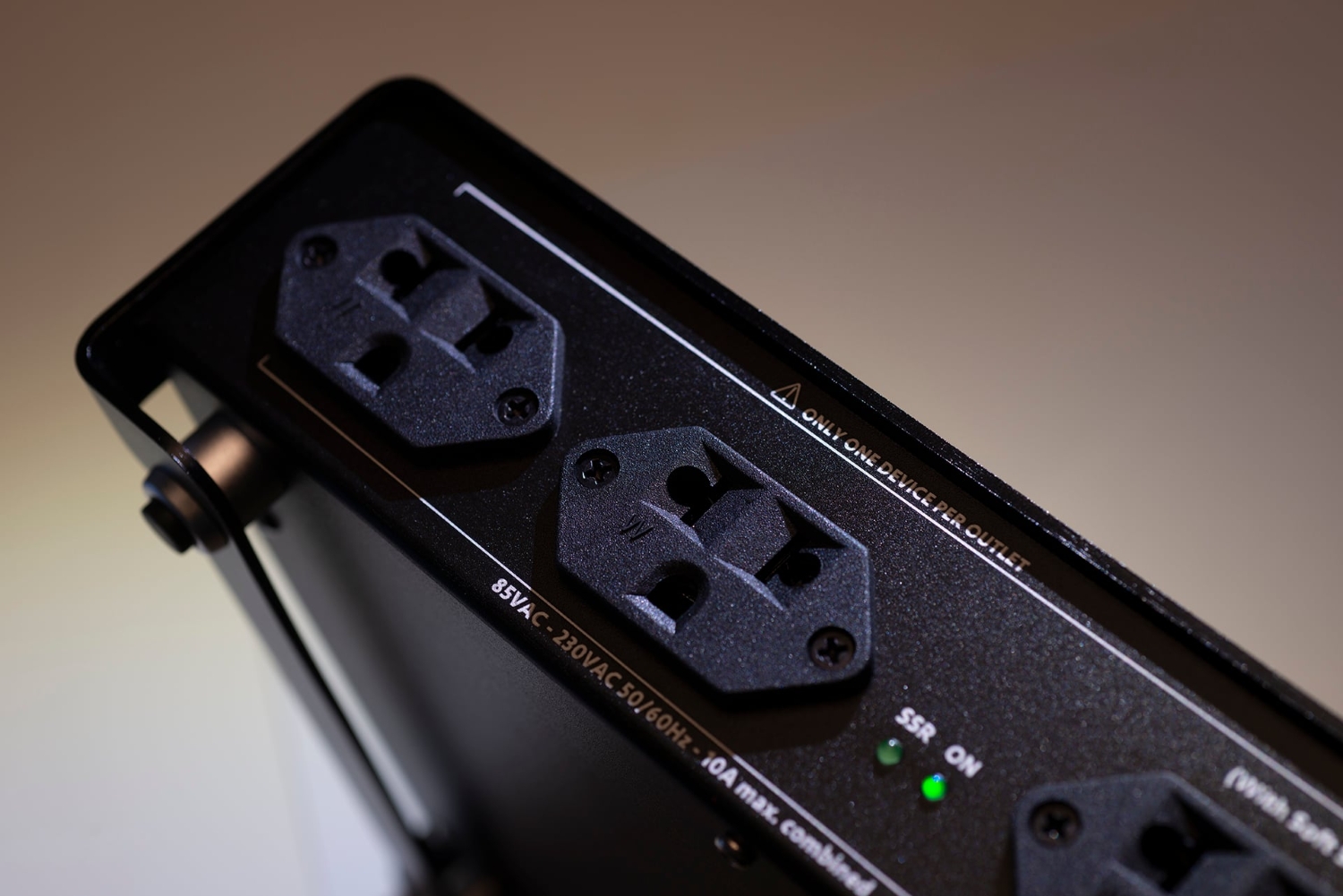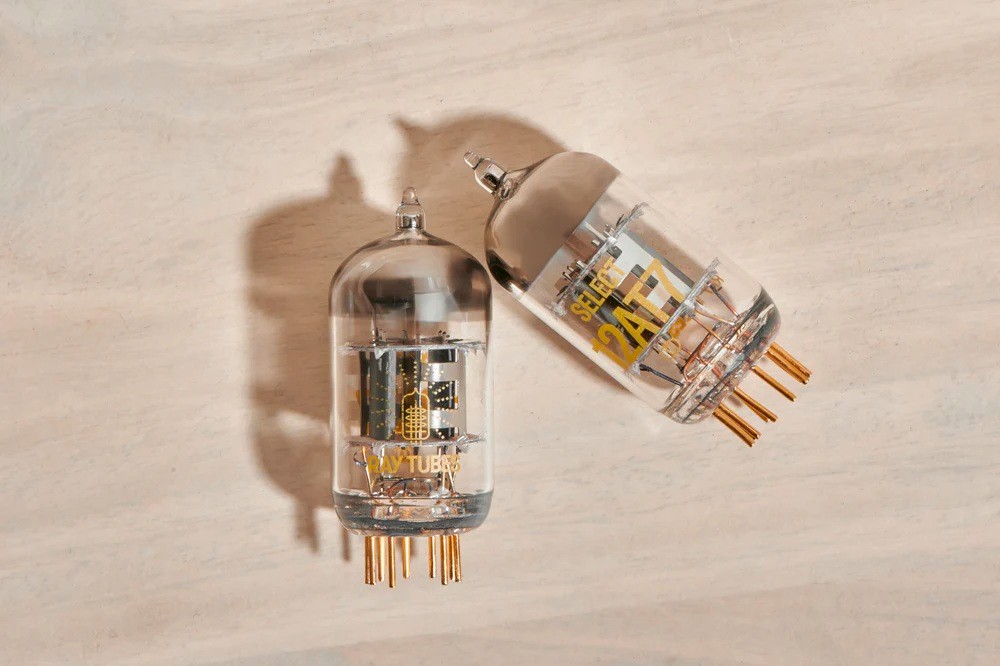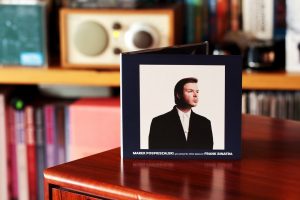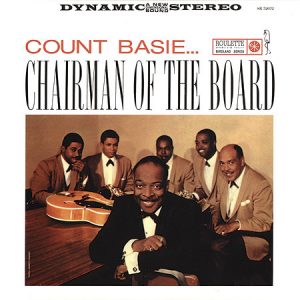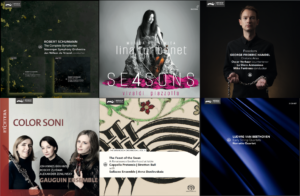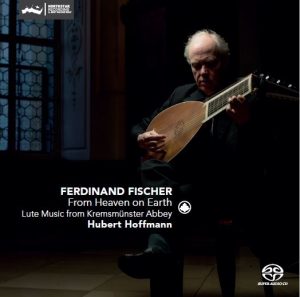Craft Latino is a specialty imprint that focuses on reissues of classic salsa, Latin jazz, Latin soul, and Afro-Cuban releases from Craft Recordings' deep catalog of Latino artists, many of which haven't been reissued as LPs for decades. Their newest reissues highlight classic records from a pair of legendary Latino percussionists, conguero Ray Barretto's Que Viva La Musica (1972, Fania Record) and timbalero and vibraphonist Tito Puente's Mambo Diablo (1985, Concord Picante Records). Both albums are also being offered for the first time as high resolution, 24-bit/192kHz digital downloads.
Both of these excellent LP reissues are presented in heavy, tip-on style jackets that are very faithful to the originals and feature album and record label artwork from the Fania and Concord Picante archives. The LPs are AAA, all-analog remasters that were cut from the original master tapes by Kevin Gray at Cohearent Audio, and were pressed on 180 gram vinyl at Memphis Record Pressing. At least, Que Viva La Musica was definitely pressed at Memphis, but I didn't have any information on Mambo Diablo. Comparing the deadwax information inscribed into the two LPs leads me to believe they were both pressed at the Memphis facility.
Ray Barretto, Que Viva La Musica. 180 Gram Craft Recordings LP, $29.98 MSRP
Pioneering percussionist, conguero (a master of conga drums), and bandleader Ray Barretto was a versatile musician who remained at the forefront of Latin music for over five decades. Barretto mastered many forms of Latin-influenced jazz, salsa, and Afro-Cuban music, and his conga playing technique showed such originality and style, he began to have a significant influence on mainstream jazz. In the late 1950s, he became a member of Tito Puente's band; that exposure catapulted him into the spotlight as an in-demand session player, and he guested on albums by Wes Montgomery, Cal Tjader, Kenny Burrell, and Dizzy Gillespie. Simultaneously, he enjoyed success as a bandleader—his 1963 hit, "El Watusi" became an international hit.
Barretto was signed to Latin music label Fania Records in 1967, and shortly afterwards introduced the world to the Ray Barretto Orchestra. Along with Barretto's congas, the group featured famed singer Adalberto Santiago, timbalero Orestes Vilató, bongosero Johnny "Dandy" Rodríguez, bassist David Perez, and keyboardist Luis Cruz. As well as a trio of trumpets, featuring Roberto Rodriguez, Rene Lopez, and Joseph Roman. The group remained together for five years and eight albums, culminating with 1972's Que Viva La Musica, which proved to be among their most noteworthy efforts as a group. The Orchestra split immediately following the album's release, and Ray Barretto went on to become the musical director of the immensely popular Fania All Stars. As well as doing session work for the likes of the Bee Gees, Crosby, Stills, and Nash, Weather Report, and The Rolling Stones, to name just a few of his countless session credits.
Que Viva La Musica is considered one of Ray Barretto's greatest albums, where his Orchestra had reached a pinnacle as they transitioned to a harder-edged salsa sound. Among the album's many highlights is the eponymous title track, "Que Viva la Musica," where the trio of percussionists enter individually from left, right, and center, then proceed to pound out a thrilling prologue. Trumpets then layer into the proceedings, as though announcing a curtain call, and the tune slowly segues into the main theme. Then Adalberto Santiago's joyful vocal (paraphrased from Santiago's sung Spanish) begins: "Long live Creole music, music is the art of expressing with emotion, I say this with great pride." Santiago's deeply expressive vocals are spotlighted throughout the album, especially in classic salsa tunes like "Bruca Maniguá" and the stirring and soulful ballad "Triunfó El Amor." "La Pelota" is one of Ray Barretto's most famous numbers; Santiago's vocal starts out slowly, but the tune's tempo quickly increases as it drives to a fiery finale. The album's centerpiece is "Cocinando," a ten-plus-minute, proto-psychedelic jam that highlights the excellent playing of keyboardist Luis Cruz, interspersed with extended percussion runs from Barretto. "Cocinando" has become one of the most iconic compositions of Latin jazz, and opens Leon Gast's 1972 documentary film, Our Latin Thing, which served as a showcase of New York City's exploding salsa scene.
Tito Puente, Mambo Diablo. 180 Gram Craft Recordings LP, $29.98 MSRP
Craft Latino is celebrating percussionist, timbalero (a master of the timbales), and bandleader Tito Puente's centennial this year, and he'll be honored with special reissues throughout 2023. A living legend in Latin jazz and salsa music, Tito Puente's five-plus decades and immensely popular records literally crowned him as the King of Latin jazz. Especially in the sixties and seventies, where Carlos Santana's renditions of Puente's hits "Oye Como Va" and "Para los Rumberos" helped bring Afro-Cuban and Caribbean rhythms into mainstream pop and rock music. And introduced Tito Puente's music to a whole new generation of fans; Puente rode that newfound wave of popularity into the 1980s and beyond.
Puente would go on to perform at the 1996 Summer Olympics' closing ceremony, and he appeared in a variety of films, including 1987's Radio Days, 1992's The Mambo Kings, and the 2000 documentary Calle 54. And as a true testament of his cross-cultural appeal, he even made a cameo appearance on The Simpsons! Over the course of his long career, Tito Puente earned five Grammy awards, Billboard's Latin Music Lifetime Achievement Award, and in 1997 he was awarded the National Medal of Arts by President Bill Clinton. Puente has been awarded honorary doctorates by the Berklee College of Music and Columbia University, and he has a star on the Hollywood Walk of Fame. His timbales are on display at the National Museum of History in Washington, DC—I guess you can say that he definitely made his mark on mainstream pop culture!
1985's Mambo Diablo was Tito Puente's third release for the then recently established Concord Picante label, and was clearly a peak in his eighties output. The album features a blend of Puente originals and standards from across the jazz canon, and really shows off his resourcefulness as a superb musician and expert arranger. Featuring Puente on timbales, percussion, and vibes, Mambo Diablo also displays the talents of his band members, including Sonny Bravo on piano, Bobby Rodriguez on bass, Jose Madera on congas and percussion, and Johnny "Dandy" Rodriguez on bongos and percussion. A horn section is also featured, including Jimmy Frisaura on trombone, trumpet, and flute, Mario Rivera on flute and saxophone, and Ray Gonzalez on trumpet and flugelhorn.
The song selection contains traditional Latin tunes, originals, and standards, but Tito Puente and his Latin Ensemble take the standards and imbue them with a distinct Latin sensibility. The title track, "Mondo Diablo," is one of the Puente originals; he plays a nicely lyrical vibraphone figure throughout what is essentially an uptempo dance number. Puente takes Billy Strayhorn's "Lush Life" and opens with a slow, smooth vibraphone and piano vamp. Midway through, the tempo jumps up and the percussion kicks in, and Mario Rivera proceeds to blow a tenor sax solo that would make Coltrane proud! And they take a catchy tune like Jerome Kern and Dorothy Fields' "Pick Yourself Up" and turn it into a fast-paced Latin blowing session. Puente's rendition of Paul Desmond's "Take Five" is a thrilling homage to the classic Brubeck version, and there's a really cool call-and-response between the tenor sax and trumpet in the midsection. None other than George Shearing sits in at the piano on a timbale and horn-driven, salsa-inspired version of his own "Lullaby of Broadway." The other Puente original, "China," has a melody that's totally familiar, but I couldn't quite put my finger on it; Puente's playing has become so ingrained into pop music culture, it all rings with familiarity.
The Craft Recordings reissues are superb!
As always, if you click on my name in the header, you can see the equipment I used to evaluate these classic Latin jazz LPs. As these are all-analog, AAA reissues, I used the tubed PrimaLuna setup, playing over the KLH Model Five loudspeakers. The surfaces of both LPs were shiny and pristine, and the sound quality of each was exceptional. And there was no appreciable groove noise—these LPs were very quiet, as I've come to expect from my recent experiences with Memphis Record Pressing LPs. My review copies of both LPs were pressed on 180 gram black vinyl, but Ray Barretto's Que Viva La Musica is available from Fania.com pressed on 180 gram translucent red vinyl.
I listen to a fair amount of world music, and I've had significant exposure over the years to Latin jazz and salsa. That said, I have to admit, I'd seen Ray Barretto's name pop up in album credits before, but I had no actual exposure to his Latin jazz music or recordings. From the opening flurry of percussion on the first track of this album, I was hooked; Que Viva La Musica is a superb album that showcases an incredible group of Latin musicians at their absolute peak. This is one of those albums that encourages you to crank the volume, and maybe get up on the floor and shake it! If you're at all interested in Latin jazz or salsa music, you'd be hard pressed to find a better introduction than this excellent album.
Tito Puente's Mambo Diablo is an excellent late-period album from a true Latino icon; it's definitely more refined than Ray Barretto's Que Viva La Musica, but no less enjoyable. I don't mean that comment as a pejorative—these two albums come from different decades with totally different artistic sensibilities. Mambo Diablo is definitely the more well-recorded of the two LPs, and might possibly be the finest example of Tito Puente's artistry that exists; his influence on pop culture, Latin jazz and mainstream jazz is undeniable. But listening to Que Viva La Musica's exciting rawness and spontaneity makes me want to take a much deeper dive into Ray Barretto's catalog of music. Regardless, both of these new reissues are highly recommended!
Craft Recordings – craftrecordings.com
All images courtesy of Craft Recordings





